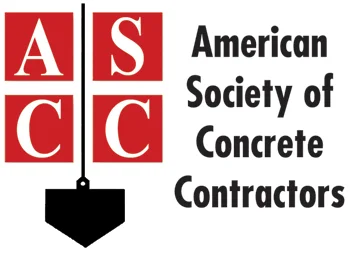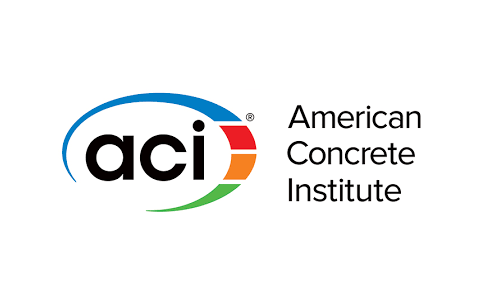Welcome to the Mattingly Family! This is a short summary of how Mattingly Concrete Inc. operates. This synopsis will summarize how a typical project will flow and hopefully shed light on many questions probably running through your mind as a client getting a concrete project completed.
Helpful Videos:
The Process!
Steps in project planning and completion:
1. You have just signed up for your project and after a short processing term you have been given a tentative schedule date. We here at Mattingly Concrete do everything in our power to keep to a schedule. This preliminary date is completely weather dependent as mother nature really takes the helm at different points of the year dictating whether or not we are able to work at our scheduled pace. If any changes in the schedule do occur, your Project Coordinator will notify you as soon as we know. This may only be 24-48 hours in advance in a worst case scenario.
2. Your Project Coordinator is the person running your project and seeing that all details and nuances of the project are tended to during each PHASE. Your project coordinator will give you the means of contacting them at almost a moment’s notice should any of your desires change or you should have questions before, during, or after your project.
3. Your Project Coordinator will start your project off by having one of MCI’s “demo and prep” crews on site to start demolition, grading, and/or forming of the project. This initial process may take any length of time from a few hours to a few days depending on site conditions, weather, or project scope and size. On a typical project, this crew will not need much oversight from our client and is under the watchful eye of the Project Coordinator. They work very independently and efficiently. During this phase is typically when we collect our “down-payment” so if you could, please be prepared to hand that crew leader a check or form of payment when prompted. Much appreciated!
4. When the “demo and prep” crews are finished, your project coordinator has already been working tirelessly to schedule the next “pouring crew” in line to pour and finish the concrete. This process can be as early as the same day the prior crew has finished to as late as a few days after. If any delays should occur, its usually due to waiting for inspections, good weather, or lastly, an open schedule. All projects are poured in the order of which they were passed on inspection or finished preparing. Your Project Coordinator will be able to answer any questions relating to this process and scheduling if asked. Again, the “pouring crew” is working under the supervision of a crew leader and in close contact with the same PC.
5. Once the concrete is poured, you’ll want to stay off with foot traffic for 24 hours and vehicle traffic for 7 days usually. Your Project Coordinator will gladly fill you in on these details as the project is reaching its final stages. Once the “pouring crews” are finished with all of their concrete pouring, the Coordinator will then schedule a time for our “cleanup crew” to swoop in and tidy up the project. Their job is to try to clean-up the jobsite to the best of their ability, take away any concrete forms, wood, and stakes that must go, and seal the concrete if it has not been sealed already. On exposed projects, this crew will expose the aggregate as well. On stamped projects, this crew will usually add color and decorative sealer. If there are any other fine items or details that are pending still, this crew is set to take care of them and punch out. This crew will usually be the last crew on site to do their own quality control and lastly collect a final payment.
6. During all of these phases, your Project Coordinator will do their very best job to keep you, the customer, in the loop of most of the on-goings of the project. Again, should any details or questions arise, contact your project coordinator at any time.
Considerations:
The following is a list of considerations for your project to have the most successful and flawless outcome possible. A few of these items are as follows.
• Parking: Our crews will need at least enough space for 2-3 vehicles to park during each phase of the project.
• Water/Electricity: Our crews will assume at any moment that any and all exterior water and electrical sources are capable of supplying our needs for the project. If either of these is unavailable or inoperable, please let us know ahead of time.
• Landscaping: Per our contract, most projects will need a weekend or so worth of TLC to help put the sod and parts of the yard back together. Unfortunately, this is a process Mattingly Concrete does not provide unless expressly written in a contract by your estimator. Please ask your estimator if this is of concern.
• Street curbs and city sidewalk: Depending on your local town or city ordinance, most ordinances do not allow for the curb along the street to be repaired or replaced without a separate set of permits or allowances being made. No matter the existing condition, this is typically something not included in any project unless expressly mentioned in contract. City sidewalks may also be deemed necessary for replacement (mainly in Carmel, IN) during a project by the city inspector. This cost is put onto the customer by the city and cannot be negotiated. These extra sidewalk panels are taken out and reinstalled as required at cost by MCI as we try to appease both parties.
• Utilities/Sprinklers/Dog wires: MCI marks all public and main utilities through the Indiana 411 Underground program ahead of each project. They mark these utilities with spray-paint and flags days before the project starts. Please try not to disturb these markings as they are very meaningful to our safe means of excavation. This program does not mark sprinklers or private underground lines such as auxiliary electrical, plumbing, dog wires, or downspouts that may be buried. Please notify your PC of these locations as they are commonly struck by equipment during construction and will likely require an extra expense of repair when the project is complete.
• Permitting: MCI bears the burden of permitting on almost every job. If a permit is required, a charge of accounting time and any associated fees will be applied to the invoice for the project usually added to the cost of the project. If this is of concern, please ask your estimator about permitting options in your area.


































